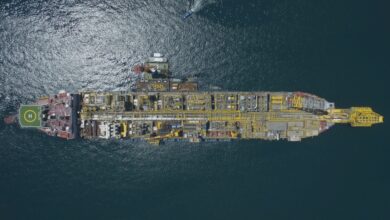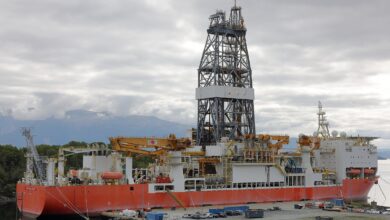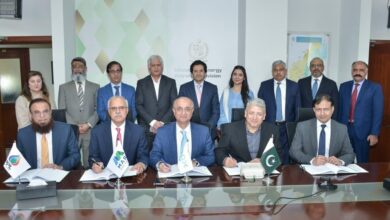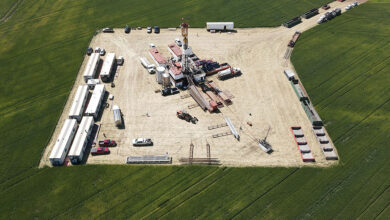Digitalization, decarbonization remain key areas of focus for Total as company navigates downturn
By Stephen Whitfield, Associate Editor
This year has been difficult for the oil and gas industry, with the COVID-19 pandemic and the oil price downturn driving activity levels to historically low levels. However, if there is a silver lining with the current economic landscape, it’s that it may provide companies with a unique opportunity to transform themselves by improving efficiencies and adapting to a lower carbon future. That’s the approach Total is taking, according to Khalil Abderrazak, Vice President of Drilling and Wells.
“We want to foster innovation and leverage our expertise worldwide in order to be more efficient in our existing business, and also allow the large-scale growth of new clean energy businesses,” Mr Abderrazak said at the 2020 IADC World Drilling Conference on 8 December.
In his keynote address, Mr Abderrazak outlined the operator’s major areas of focus heading into 2021, starting with carbon emissions reduction. Total has laid out clear ambitions to reduce its carbon footprint, with three major scopes in which Total views the challenge of getting to net zero carbon emissions by 2050: reducing emissions to net zero in its operations, reducing the emissions of the products that it sells in Europe to net zero, and achieving a net 60% reduction in carbon intensity worldwide.
Since 2015, Total has already achieved “significant’ reductions in its emissions, Mr Abderrazak said, thanks primarily to better operational efficiency and reduced flaring. However, there is a need for additional sustainable energy solutions, as global energy demand is only expected to grow as developing countries strive for higher living standards for their growing populations.
“This is a goal that we must achieve,” he said of reaching net-zero emissions. “It’s a target that we have set for ourselves, and we will need the participation of our contractors for that. There is a clear and existential need for climate neutrality for the planet. It is an absolute necessity, and that is what will drive our market and our industry for the next few years.”
To help achieve net zero emissions, Total has invested heavily in carbon capture and storage. In 2017, it partnered with the Oil and Gas Climate Initiative (OGCI) and other major operators, including Equinor, Occidental Petroleum and Shell, on the Teesside Project, the UK’s first commercial-scale, fully integrated carbon capture and storage project. In 2019, it launched a major carbon capture project in Dunkirk that could accommodate up to 10 million tons of CO2 annually by 2035. It also announced a partnership with the US National Carbon Capture Center to help develop new carbon capture technology.
Within its drilling operations, Total is looking to “de-carbonate” as much as it can. The company has established a team within its drilling headquarters to prepare a carbon footprint reduction roadmap, focusing on energy efficiency, electrification of the power supply, automation technologies and carbon capture. It is also launching a six-month deepwater project in Angola where it will monitor the energy efficiency of an unnamed drillship and study CO2 offsetting solutions.
Amid its focus on getting to net zero, Total will maintain its focus on developing its petroleum assets, as well. In November, it contracted the Maersk Developer semisubmersible and Maersk Valiant drillship for an exploration and appraisal project in Block 58 offshore Suriname; the campaign is expected to start in early 2021. Total also hopes to take FID on the Lake Albert development project in Uganda, and the Mozambique LNG project is still expected to deliver first gas in 2022.
“In our outlook for the next decade, oil and gas will continue to receive the biggest share of our capital investment, but with discipline and a focus on value over volume,” Mr Abderrazak said. “We plan to continue to grow. While we diversify our energy mix, oil and gas will be the engine of our ambition.”
While he expects the economic downturn to improve in 2021, Mr Abderrazak said Total has reduced its CAPEX by 20% and will maintain a pragmatic approach to its portfolio next year. This means that pushing the limits on drilling performance is more critical than ever, and contractors must focus on improving their operational efficiency and the reliability of their equipment. Total sees digital technology as a key enabler: Since September 2019, the company has been running its DrillX integrated application platform on five rigs to predict kick risk and detect influxes during drilling and the risk of stuck drilling assemblies.
“We have a very open mindset,” Mr Abderrazak said. “We welcome new technologies and any new ideas that can improve our operations. We have demonstrated our ability to deliver through innovation, and we want to continue with this pioneering spirit.”




